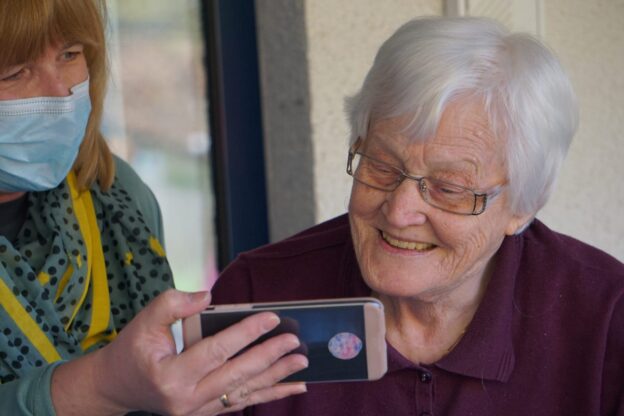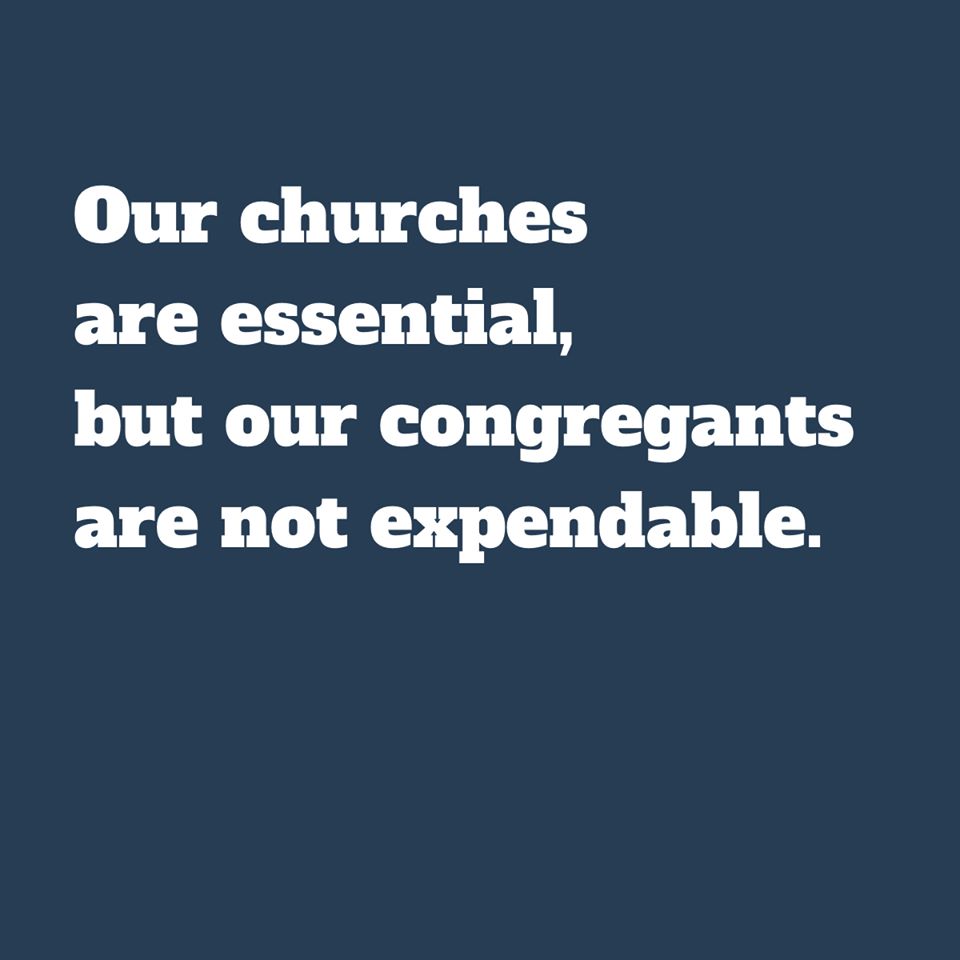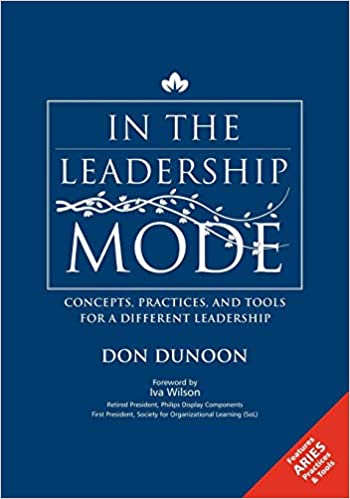Among many angles of spiritual formation during societal and global upheaval, these reflections from church leaders examine dynamics like community disruption and anxiety; the illusion of security in leadership best practices; pastoral wisdom from the Congo; and a community guide for praying during pandemic.
INDIVIDUAL SOUL POSTURE
Disruption, Solitude, Anxiety
How is it with your soul right now? Rev. Ashlee Alley Crawford, Clergy Recruitment and Development Coordinator for the Great Plains Conference of The United Methodist Church, took to social media to encourage reflection on the state of our hearts. She writes,
“The chaos of the external world means we’re all going to be staying home more in the weeks ahead. That’s perhaps a bit of a scary thing-not to mention that for many, that means loss of income and loss of essential connection with others. Is there a gift in the disruption of our rhythms? I absolutely believe there is, but it will not be easy. Thinking about those most financially fragile and finding ways to cultivate hospitality and generosity in this time will require something of us.
Not to mention that we’re likely going to be alone with our own thoughts a bit more. Solitude and silence as spiritual practices are the best teachers, but it can take a while to make friends with them. These new disruptions and the anxiety they produce tempt us into creating a hurry of a different sort.
But I’m convinced that this season of cancellations and more time on our hands-even though it’s most unwelcome-has a gift for us.”
Rev. Crawford’s insights on disruption, anxiety, community, and mindfulness are a timely call to lean into silence, or solitude, or self-awareness.
Deepening Character when Strategy Implodes
Meanwhile a gripping narrative has emerged from The Wesleyan Church, pivoting from personal quarantine to profound reflection. Rev. Ben Ward, Asia-Pacific Area Director and Director of Development and Communication for Global Partners, discusses imploding plans and emerging realization:
“On March 9, I was issued a home quarantine order from the Ministry of Health here in Singapore. This means I essentially can’t leave my bedroom for the next eight days. I was on a flight from Istanbul to Singapore on March 3. Apparently, a fellow traveler developed COVID-19 symptoms on the flight. The government began contact tracing to identify those who had close contact with the passenger, issuing quarantine orders. They tracked me down.”
Aside from the personal impact, Ward goes on to share the frustration of watching teams sent home and cancelling a major event that had taken months of resources and planning. With gracious transparency, he teases out a moment of clarity:
“Beyond the inconvenience the Coronavirus has created for me, it is also causing me to rethink what effective Christian leadership looks like.
I used to think an effective leader set a plan and then implemented that plan no matter what circumstances arose. Thinking through scenarios that could derail the plan and creating contingencies were essential leadership practices. If unforeseen events occurred and derailed the plan — well then, the leader must not have planned well enough.
But no one saw the Coronavirus coming. My best-laid plans were shipwrecked.
Ward goes on to share the keen awareness that,
“Planning is harder in the majority world than in the developed world. My Christian sisters and brothers in developing contexts have many more variables to consider that can derail their plans. I have enjoyed more stability than the majority of the world’s inhabitants. I repent of my arrogance, for thinking my hyper-planned-out approach to life is superior. I have more grace for my colleagues who keep loving, learning and leading in contexts marked by uncertainty and instability.”
He concludes with a sharp call to new perspective: “the thwarting of strategy is an invitation for God to do a deeper work of character.” (Click here to read Rev. Ward’s piece in its entirety.) What a beautiful posture toward spiritual formation when our best-laid plans go out the window.
When Lent Means Fasting from Easter
Over the weekend I saw comments online wryly expressing that people hadn’t meant to give up quite this much for Lent. Today (March 16), tired pastors woke up to new CDC recommendations for the next eight weeks and realized that Sunday gatherings may be suspended over Easter. When I saw the comments on fasting and Lent, a memory stirred: last spring, Rev. Carolyn Moore asked me to write for her series on the Lordship of Christ, and I sent her “Jesus is Lord of the Valleys,” which expressly calls out what happens to fasting and Lent during upheaval, unpredictability, and loss. I wrote,
“Out of the corner of our eye, we have peripheral awareness of how close to being faith consumers we really are. We choose to go to a conference so we can grow spiritually. We choose to show up to Bible study so we can grow spiritually. We choose to read a book so we can cry or become more efficient or grow spiritually.
We choose.
We choose the parameters of our growth. Where we next discern/feel/think that God is leading us. What we will “give up” for Lent. The problem is the insidious mindset that is entangled in our approach to faith: that we set the table, invite the guests, and choose the menu of our own spiritual growth. That we can choose what outcomes we want to see in our spiritual life. That we control how we want to be made Christlike. Lent changed from practices I chose to something outside my control, and I didn’t like it.
God allowed my chosen self-denial to be replaced with real desperation. I can’t guarantee you stability in this life. I can’t guarantee you won’t face tragedy. I can witness to the goodness of God, though…”
When the shape of spiritual formation is taken out of our hands – what is left? Grabbing onto Christ, proclaiming the goodness of God.
COMMUNITY SOUL POSTURE
Shared Prayer Guide for the Coronavirus Season
As we see the season of Lent turned inside-out, one way to witness to the goodness of God is through the discipline of shared prayer. Early on Rev. Pete Grieg shared a prayer resource as a community guide for praying about the impact of Covid-19. At the time, the likelihood of Coronavirus disruption had barely punctured American consciousness, but Grieg is quite in touch with global developments – the 24/7 prayer movement he helped to found stretches around the world. What seemed a bit early was, in retrospect, very timely: a lesson in itself perhaps. (Checking the calendar, “a bit early” in reality was just a week and a half ago.) Here is an excerpt:
“JEHOVAH SHALOM, Lord of Peace, we remember those living in Coronavirus hotspots. May they know your presence in their isolation, your peace in their turmoil and your patience in their waiting. Prince of Peace, you are powerful and merciful; let this be their prayer – ‘May your mercy come quickly to meet us, for we are in desperate need. Help us, God our Saviour, for the glory of your name.’ (Ps 79:8)
JEHOVAH RAPHA, God who heals, we pray for all medical professionals dealing daily with the intense added pressures of this crisis. Grant them resilience in weariness, discernment in diagnosis, and compassion upon compassion as they care. We thank you for the army of researchers cooperating towards a cure – give them clarity, serendipity and unexpected breakthroughs we pray. Rise Sun of righteousness, above this present darkness with healing in your rays. You are powerful and merciful; may this be our prayer – ‘Sovereign Lord, you have made the heavens and the earth by your great power and outstretched arm. Nothing is too hard for you.’ (Jer 32:17)
(Click here for downloadable slides for the entirety of this excellent prayer guide to use in community prayer – even if praying together occurs in virtual worship, and not in person.)
Spiritual Formation Lived in Shared Membership Vows
For congregations, Rev. Andy Stoddard reinforces community spiritual formation through the lens of membership vows, organizing congregational communication and resources through prayers, presence, gifts, service, and witness, with resources linked in each. He writes,
“There’s an old hymn of the church that reminds us: “The church is not a building; the church is not a steeple; the church is not a resting place; the church is a people.” We all believe that, we all know that, but in a season of “social distancing” it can be really hard for us to remember what it means to be connected. That, in many ways, is my worst fear. We need each other. And we need the church. The church will continue to be at work, and we each can continue to do our part, and remember vows that we made on joining the church. In this time, in this moment, we continue to need God and need each other. I love our memberships vows, and I believe that in this time, as we keep faithful with our prayers, presence, our gifts, our service, and our witness, these vows will hold us together more and more. I want to share some useful resources that can help you and me live into our calling in this and every season. This will be a growing list in the days to come.”
What a great way to order posture for the days to come: to remind people of who they are, what they have committed together, and who the church will continue to be.
When Prudence and Cooperation Are Spiritual Formation: Wisdom from the Congo
Often community is pictured locally; but people of faith constantly affirm the unity of the global church. We are part of a local-global connection tying us to believers around the world. We all follow Jesus: it’s that simple.
While weighing the challenges of Coronavirus-related restrictions, Rev. Beth Ann Cook reached out to a clergy friend from the Democratic Republic of Congo; he has pastored people, “in the midst of war, economic and political unrest, and a cholera epidemic.” She expressed, “I was so very grateful to be able to ask, ‘what do I do?’” He responded,
“In such a situation we ask people not to panic but to be prudent.
Help people as Christians to turn our faces to God in prayer and ask for his wisdom to face the situation.
Mobilize the community and congregation to follow instructions given by health authorities.
Develop an excellent communication network.”
The posture suggested by a pastor who has led during war, economic dives, and cholera? Be prudent rather than panic; help people turn to God in prayer and to pray for God’s wisdom; use influence in your region and congregation to follow health authorities; and invest in a strong communication network.
If energy spent in helping people to be a non-anxious, careful presence or promoting health authority protocol seems separate from spiritual formation, it’s not. Centuries ago, the Apostle Paul wrote to Christ followers on the edge of the Mediterranean, “Rejoice in the Lord always. I will say it again: Rejoice! Let your gentleness be evident to all. The Lord is near. Do not be anxious about anything, but in every situation, by prayer and petition, with thanksgiving, present your requests to God. And the peace of God, which transcends all understanding, will guard your hearts and your minds in Christ Jesus.”
As we form and grow, Paul – and a pastor from the Congo – remind us of the value of practicing mental habits and choices that the Holy Spirit can empower and illumine: in the middle of difficult circumstances, we can take joy, let gentleness be evident to everyone, resist the nagging call of anxiety, and in every situation, present our requests to God through prayer with gratitude. These postures are both individual and communal, hammered out personally and corporately.
In Matthew 22, we read, “Tell us then, what is your opinion? Is it right to pay the imperial tax to Caesar or not?” But Jesus, knowing their evil intent, said, “You hypocrites, why are you trying to trap me? Show me the coin used for paying the tax.” They brought him a denarius, and he asked them, “Whose image is this? And whose inscription?” “Caesar’s,” they replied. Then he said to them, “So give back to Caesar what is Caesar’s, and to God what is God’s.”
Building a posture of humility includes mindfulness about Christians’ presence and witness in “the public square.” In times of outbreak, a response of simple humility might be, “of course we may have the right to do something, but we love our neighbors with the sacrificial love God has shown for all of us, and our actions must not ever be only about our own interests, real or perceived. And for the sake of our congregation and our community, we happily submit to anything that does not require us to deny Christ. We can easily worship Christ in our homes just as easily as we can in one building. We have nothing to fear by worshiping at home and serving safely wherever we can.”
The Discomfort of Spiritual Growth in an Outbreak: Wisdom from the 1500’s
About two weeks ago, Wesleyan Accent shared an adapted piece written during the Ebola outbreak, on Martin Luther’s pastoral responses to contagion in the form of the plague. People of faith don’t only have global connections during crisis; we affirm in the Creed, “we believe in the communion of saints…” The Body of Christ stretches across space and time and sometimes there is wisdom to be found from voices through the centuries.
“Even if people are accustomed to relative health and ease – or especially if they are – it is impossible to insulate any life from certain realities: illness, vulnerability, lack of control, mortality. Pastoral care during outbreaks is in part the quiet calming of deep existential fears usually ignored, avoided, or drowned out by many people in the Western world.
In addition to taking sensible precautions and exercising common sense and good cheer, we can outfit ourselves with wisdom from church history. Perspective is never so valuable as in a time of panic, warranted or unwarranted or somewhere in between. So let’s inoculate ourselves against denial, on one hand, and fear, on the other, with a visit to the Book of Common Prayer and a cantankerous German monk, Martin Luther.”
Luther gives counsel on the shape of prayer in the face of contagion; he offers frank advice on the social and ethical responsibilities of serving others if it puts you at risk; and he comments on pragmatic angles of dying well – a deeply ignored element of spiritual formation in the U.S. Despite the difference in what we now know of disease spread, a great deal of his insight translates remarkably well – and sometimes with unexpected kindness toward those who feel themselves faltering.
A Note to Tired Pastors
There are times that church leaders are tempted to grow discouraged; we know how much energy ministry can take when things are going well; will people turn toward their faith if there is no Sunday gathering, if the activity calendar suddenly goes silent? But activity and spiritual growth are two different things.
The question of whether people will grow or wilt may be thrown into clearer relief when business as usual is disrupted; but it’s not a new question, it’s an old question. And there is nothing that pastors have ever been able to do to guarantee that the people who often sit in the pews will push deeper into their faith in moments of chaos.
Fear that people will fall away from church because a time of outbreak occurs is the same fear that a person will fall away from faith because of a cancer diagnosis. We cannot inoculate believers from loss, challenge, or hardship. Some people may have casually engaged with faith communities, and they will become more invested, more active – they may even discover a call to ministry through this time. Others may have casually engaged with faith communities, and they will become less invested, less active – their belief may diminish in the face of self-preservation or trauma.
In your work to strengthen communications, encourage prudence over panic, support health initiatives, and lead into deep and regular prayer, be at peace. Do your best to support spiritual formation in the face of quarantine, and trust that while the congregation may look different when all is said and done, you will have new and more reasons to witness to the goodness of God than you can imagine right now. The well-being of your congregation and community is not all on your shoulders; so commit with boldness to stretches of rest, and let your spirit be formed.











